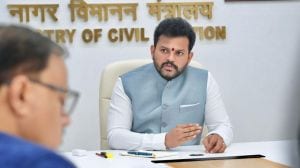Washington not trying to contain China: Obama
U.S. President Barack Obama said on Monday that Washington was not trying to contain China's rise but said trade between the two giants needed to be more balanced.
U.S. President Barack Obama said on Monday that Washington was not trying to contain China’s rise but said trade between the two giants needed to be more balanced.
Addressing students at a town hall-style meeting in Shanghai on the first full day of his first trip to China,Obama said the notion that Washington and Beijing must be adversaries was not pre-destined.
“We do not seek to contain China’s rise,” Obama said before taking questions from the audience as well as from Chinese over the Internet.
“We do not seek to impose any system of government on any other nation but we also don’t believe the principals we stand for are unique to our nation.”
Obama noted that in 1979,when Washington established ties with the People’s Republic of China,trade was worth several billion dollars,compared to more than $400 billion now.
He added that Washington would dramatically expand the number of Chinese students who could study in the United States.
Obama faces tensions with China over trade and Tibet on his first visit to the emerging superpower for a summit that will grapple with economic imbalances and the future of the yuan currency. Obama arrived in Shanghai,China’s commercial hub,late on Sunday.
Chinese state-run Internet sites have asked the public for questions to quiz Obama at the youth meeting,and many had urged him to explain if he plans to meet the Dalai Lama,the exiled Tibetan leader whom Beijing brands a separatist.
These events will be a warm-up for Obama’s summit with President Hu Jintao in the capital on Tuesday that will cover trouble-spots such as North Korea and Iran,and efforts to forge a new climate pact.
Obama has said he will also raise the sensitive subjects of human rights,and sometimes tense trade ties and China’s yuan currency ,seen by U.S. industry as significantly undervalued and stoking unsustainable global economic imbalances.
“The president will be talking about balanced,strong sustainable growth and the policies that go into making that happen,” a U.S. official,speaking on condition of anonymity,told Reuters.
At a gathering of Asia-Pacific leaders in Singapore over the weekend,Hu pointedly ignored international calls for his government to raise the value of the yuan and make Chinese exports relatively more expensive.
He and other senior Chinese officials have instead accused other countries — implicitly including the United States — of embracing damaging trade protectionism aimed at Chinese goods.
China on Monday made a fresh,thinly veiled criticism of the United States for running lax monetary and fiscal policies that risk undermining the dollar.
Countries whose currencies are held as reserves by global central banks are failing to take sufficient account of the global repercussions of their domestic policy stances,Assistant Finance Minister Zhu Guangyao told a financial forum.
But having already made their gripes clear before the summit,Obama and Hu may avoid sharp public jabs as they focus on building goodwill between the the world’s biggest and third biggest economies.
China has had a huge trade surplus with the United States,and is also the largest foreign holder of U.S. government bonds.
The U.S. trade deficit with China widened 9.2 percent in September to $22.1 billion,the highest since November 2008,according to U.S. data released last week.
- 01
- 02
- 03
- 04
- 05































